MBA Full Name
“MBA Full Name” stands for Master of Business Administration, a graduate degree emphasizing business management. It encompasses accounting, finance, marketing, and HR, offering a comprehensive education in strategic business practices.

Highlights- why MBA (Master of Business Administration)

The Master of Business Administration (MBA) is a prominent graduate degree that equips students with extensive knowledge and skills across various business disciplines.
Here are some key highlights of an MBA program:
Comprehensive Curriculum
MBA courses cover essential areas such as finance, marketing, HR, operations, and strategy. This broad exposure prepares graduates for leadership roles in diverse business environments.
Skill Development
The degree focuses on developing crucial skills like strategic thinking, leadership, effective communication, and problem-solving, which are vital for high-level management roles.
Networking Opportunities
Students gain access to a vast network of peers, alumni, industry leaders, and professors, which can be invaluable for career advancement and business opportunities.
Career Advancement
An MBA (Master of Business Administration) is highly valued in the job market and can significantly enhance career opportunities. Graduates often see improved job prospects, higher salaries, and the potential to move into senior management roles.
Global Perspective
Many MBA courses offer international exposure through global campuses, international case studies, and opportunities to study abroad, helping graduates develop a global business outlook.
Entrepreneurship
The program also fosters entrepreneurial skills, encouraging students to initiate and manage their own business ventures effectively.
Customization and Specialization
Most programs offer options to specialize in areas such as finance, technology, healthcare, or entrepreneurship, allowing students to tailor their education to their career goals.
Some of the most opted courses in India and St. Andrews college or different Engineering college or Management colleges are as follows:-
15 Benefits of doing an MBA

MBA full name is Master of Business Administration. An MBA offers numerous benefits that can enhance both personal and professional development.
Here are 15 key benefits of pursuing an MBA:
Enhanced Career Opportunities
Graduates often have access to a broader range of career opportunities in management and executive positions.
Higher Salary Potential
MBA degree holders typically command higher salaries compared to those with only undergraduate degrees.
Improved Professional Skills
Skills like leadership, strategic thinking, and data analysis are sharpened, which are essential for management roles.
Networking Opportunities:
Students can connect with peers, alumni, industry leaders, and professors who can provide valuable business contacts and opportunities.
Entrepreneurial Development
Many MBA courses foster entrepreneurial skills, helping students to start or grow their own businesses.
Global Exposure
Programs often include global immersion trips, international case competitions, and networking with a diverse cohort.
Personal Growth
Completing an MBA degree can significantly enhance personal skills, including time management, resilience, and self-discipline, due to the rigorous nature of the program.
Leadership Training
Emphasis on leadership training prepares graduates to effectively manage teams and drive business success.
MBA Specialisation Options
Most MBAs offer specializations that allow students to focus deeply on their area of interest such as finance, marketing, or technology.
Credibility
An MBA degree can increase your credibility within your professional and business networks.
Access to Resources
Business schools provide access to extensive resources including state-of-the-art technology, research, and expert faculty.
Corporate Partnerships
Many programs have connections with corporations that provide students with internships, live projects, and employment opportunities.
Career Support Services
Comprehensive career services including coaching, resume building, and interview preparation help graduates secure top jobs.
Flexibility in Learning
Many programs offer flexible learning options, including part-time, online, and executive MBA formats, to fit different lifestyles and career stages.
Change of Career Path
An MBA is an excellent tool for those looking to shift to a new industry or career path, providing the necessary knowledge and networks to facilitate a transition.
Why Pursue an MBA? Understanding the Value and Opportunities
MBA Degree Admissions Process

The admissions process for an MBA degree can vary between institutions, but it generally involves several common steps. MBA full name is Master of Business Administration.
Here’s a general overview of the typical MBA admissions process:
Research and Selection
The first step is researching various MBA courses to find those that best fit your career goals and preferences. Consider factors like program focus, faculty expertise, location, duration, cost, and the alumni network.
Entrance Exams
Most MBA courses require scores from graduate school entrance exams such as the CAT and MAT. Preparing for and scoring well on these tests is crucial as they are a significant component of the application.
Application Preparation
Gather all necessary documents, which typically include:
- Transcripts: Official academic transcripts from all undergraduate and any graduate institutions attended.
- Resume: A detailed resume outlining professional experience and achievements.
- Essays: Most programs require one or more essays or a statement of purpose that discusses your career goals, why you want an MBA, and why you are a good fit for the program.
- Letters of Recommendation: Typically, two or three letters from academic or professional references who can speak to your qualifications and potential for success in an MBA program.
English Proficiency Test
For non-native English speakers, English proficiency tests like TOEFL or IELTS might be required.
Interviews
Once the initial application is reviewed, shortlisted candidates are usually invited to an interview. This can be conducted online or in-person and is a chance to further demonstrate your enthusiasm and suitability for the program.
Application Submission
Submit your application by the deadline. MBA courses often have several rounds of admissions, so be aware of these deadlines to plan your application submission accordingly.
Wait for Decision
After submitting all required documentation and completing an interview, the next step is to wait for the admissions decision. During this period, schools may request additional information.
Acceptance and Enrollment
If accepted, you’ll typically receive an offer letter and instructions for the next steps to enroll, such as submitting a deposit to secure your spot and registering for classes.
MBA Programs: Eligibility Criteria
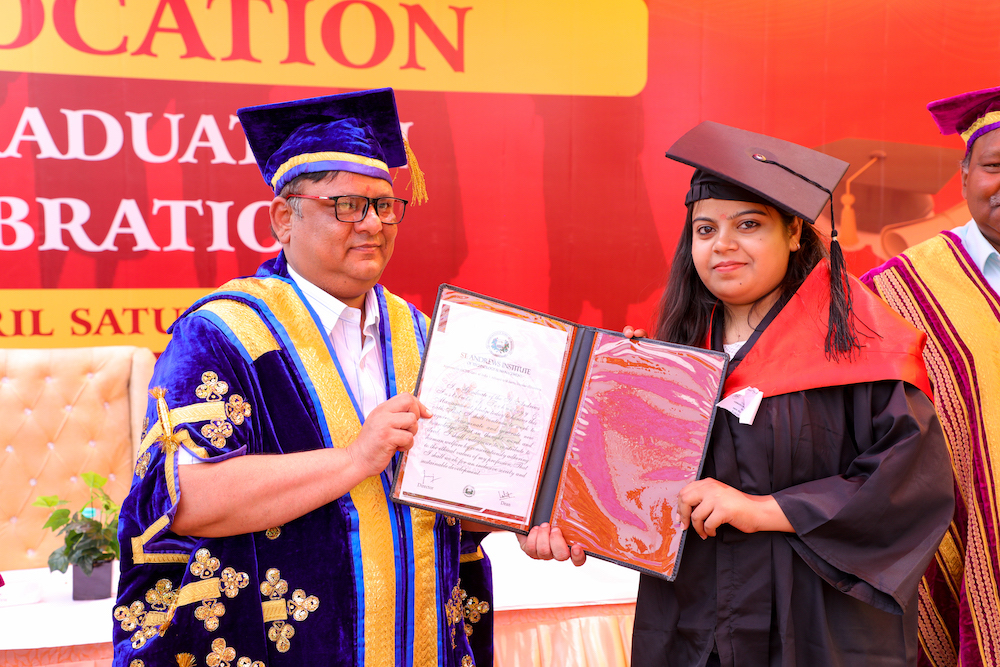
In India, the eligibility criteria for MBA courses can vary depending on the institution, but there are common requirements that most business schools adhere to.
Here’s a detailed overview of typical eligibility criteria for enrolling in an MBA program in India:
Educational Background:
- Bachelor’s Degree: Applicants must have completed a bachelor’s degree (such as BA, BSc, BCom, BE, BTech, etc.) from a recognized university or institution.
- Minimum Marks: Generally, candidates need to have secured at least 50% marks in aggregate at the undergraduate level (45% for SC/ST/PwD candidates).
Entrance Exams:-
- CAT (Common Admission Test): This is the most popular entrance exam for pursuing an MBA in India, utilized by premier institutions like the IIMs (Indian Institutes of Management) and many others.
- XAT (Xavier Aptitude Test), CMAT (Common Management Admission Test), MAT (Management Aptitude Test), and SNAP (Symbiosis National Aptitude Test) are other exams accepted by various institutions.
- State-specific Exams: Some states conduct their own MBA entrance exams, like MAH-CET for Maharashtra.
Work Experience:
- Experience Requirements: While work experience is not mandatory for most MBA courses in India, having professional experience can enhance a candidate’s application, particularly for executive MBA courses or certain specialized MBA courses that value practical industry exposure.
Additional Requirements:
- Group Discussion and Personal Interview: After clearing the entrance exams, candidates often need to participate in a group discussion (GD) and personal interview (PI). Some institutions might also conduct written ability tests (WAT).
- Management Quota: Some private institutions and universities have a management quota under which admissions can be secured without the need for entrance exams, based on undergraduate marks and personal interviews.
English Proficiency:
- While not as commonly required as in non-English speaking countries, some business schools in India may ask for TOEFL or IELTS scores from candidates who have completed their education in a non-English medium.
Top MBA Specialisations

MBA courses provide a spectrum of specialized tracks tailored to accommodate the varied interests and professional aspirations of students. These MBA specialisations offer avenues for focused study and skill development in specific areas of business.
Here are some of the top specializations within MBA courses that are popular globally:
Finance
This MBA specialisation equips students for careers in corporate finance, investment banking, asset management, and financial planning. It includes in-depth coverage of topics such as financial markets, corporate financial strategy, portfolio management, and mergers and acquisitions.
Marketing
Focused on consumer behavior, brand management, sales, digital marketing, and market research, this specialization aims to equip students with the skills needed to lead marketing departments and drive business growth.
Operations Management
This area deals with the efficient management of business operations and supply chains. It involves the study of logistics, production management, supply chain management, and quality control.
Human Resources Management
Specializing in HR focuses on the management of human capital in an organization. It covers topics such as recruitment, training and development, performance management, and employee relations.
Information Technology (IT) Management
This specialization prepares students to manage IT resources, projects, and strategy alignment. It includes subjects like information security, software development management, and IT consultancy.
International Business
Geared towards students interested in global operations, this specialization covers international trade laws, global supply chain management, and cross-cultural management.
Strategy
This specialization focuses on teaching students how to make long-term strategic decisions and analyze competitive environments. It includes learning about strategic planning, competitive strategy, and scenario planning.
Entrepreneurship:
Ideal for those looking to start their own business or take over family businesses, this specialization covers new venture creation, innovation management, and entrepreneurial finance.
Healthcare Management
This prepares students for roles in the management of healthcare institutions, including hospitals, clinics, and insurance companies, with a focus on healthcare policy, ethics, and law.
Consulting
Aimed at those who wish to pursue a career in management consulting, this specialization teaches problem-solving skills, client management, and how to provide expert advice to improve business performance.
Different types of MBA Courses
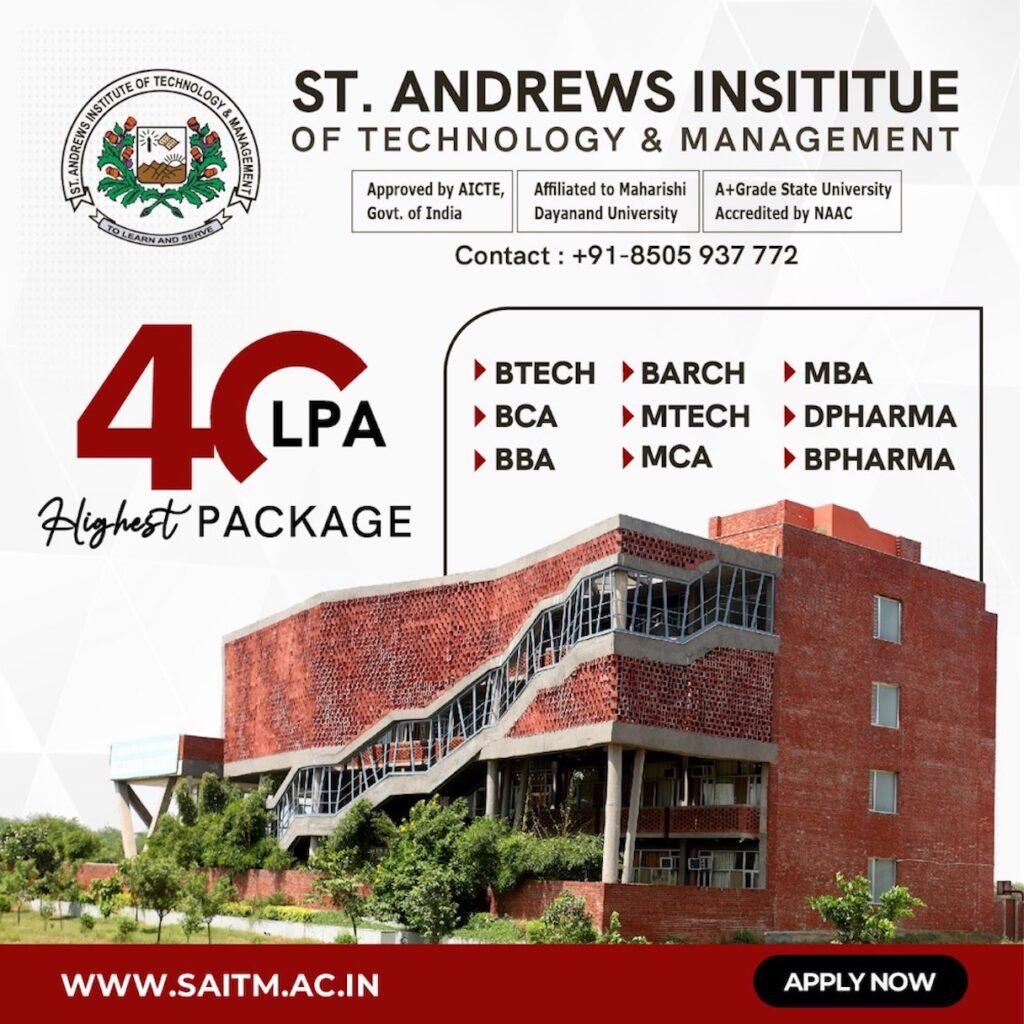
MBA (Master of Business Administration) programs come in various formats to suit different career stages, schedules, and learning preferences.
Here are some of the different types of MBA courses available:
Full-Time MBA
Typically a two-year program, full-time MBAs are immersive and require students to attend classes on weekdays. This format is ideal for those who can dedicate full-time efforts to their studies and are seeking a comprehensive learning experience with internships and campus activities.
Part-Time MBA
Designed for working professionals, part-time MBAs allow students to work full-time while attending classes during evenings or weekends. This type typically takes longer to complete, often three to five years.
Executive MBA (EMBA)
Tailored for mid- to senior-level professionals, EMBAs are part-time programs that focus on advancing leadership and management skills. These programs usually require students to have significant work experience, typically around 10 years or more.
Online MBA
These programs are delivered entirely online, offering flexibility for students to study from anywhere. Online MBAs are becoming increasingly popular and respected, especially those offered by accredited institutions.
Accelerated MBA
An intensive program that is shorter than the traditional two-year full-time MBA. Accelerated MBAs usually last around 12 to 18 months and involve a higher course load and a more intensive class schedule.
Global MBA
Specifically designed for global exposure, these programs often have components that require travel to and study in multiple countries. They focus on international business strategies and cross-cultural management.
Dual Degree MBA
This program allows students to earn an MBA along with another graduate degree, such as a JD (Law degree), MPA (Master of Public Administration), MPP (Master of Public Policy), MD (Doctor of Medicine), or MS (Master of Science) in various fields. These are longer programs that provide expertise in multiple disciplines.
Specialized MBA
Some institutions offer MBAs with a focus on specific industries such as healthcare, technology, or sustainability. These programs include core MBA courses but emphasize a particular sector throughout the curriculum.
Learning management skills is why MBA degrees will set you apart in the job market

MBA full name is Master of Business Administration. An MBA degree can significantly enhance your career prospects for several reasons, primarily due to the management skills it imparts:
Leadership Skills
MBA courses emphasize developing leadership and people management skills. These are crucial for roles that require overseeing teams and leading projects.
Strategic Thinking:
You learn to think strategically, which is essential for making decisions that affect the overall direction of a business.
Analytical Abilities
An MBA curriculum includes training in using analytical tools and methodologies to solve complex problems and make data-driven decisions.
Networking Opportunities:-
Being in an MBA program gives you access to a network of professionals, alumni, and peers who can be valuable resources throughout your career.
Credibility:
Holding an MBA is often seen as a mark of credibility and competence, especially in business and management roles.
Versatility
The skills acquired through an MBA are applicable in various roles across industries, making MBA degree holders versatile and adaptable to different business environments.
Top MBA Courses Entrance Exams

In India, admission criteria for MBA courses include several widely recognized MBA entrance exams. MBA full name is “Master of Business Administration”. These exams are crucial for candidates as they assess various quantitative, qualitative, and analytical skills necessary for business management studies.
Here are some of the top MBA entrance exams in India:
CAT (Common Admission Test)
This is the most popular MBA admission test in India, primarily used for entry into the Indian Institutes of Management (IIMs) and numerous other business schools across the country. The CAT evaluates quantitative ability, verbal ability, and logical reasoning.
XAT (Xavier Aptitude Test)
Conducted by XLRI Jamshedpur, XAT is another important admission test used by many top management institutes in India. It evaluates areas such as decision making, verbal and logical ability, quantitative ability, and general knowledge.
CMAT (Common Management Admission Test)
This test is conducted by the National Testing Agency (NTA) and is used for admission into various management programs offered by AICTE-approved institutions.
MAT (Management Aptitude Test)
Administered by AIMA, MAT is used for admission to over 600 business schools across India. It tests mathematical skills, general knowledge, data analysis, and reasoning capabilities.
IIFT Entrance Test
Specifically for entry into the MBA (International Business) program at IIFT, this exam tests English grammar, vocabulary and comprehension, general knowledge and current affairs, logical reasoning, and quantitative analysis.
ATMA (AIMS Test for Management Admissions)
Conducted by the Association of Indian Management Schools, ATMA is recognized by various MBA colleges and universities across India. It focuses on analyzing a candidate’s verbal skills, quantitative skills, and analytical reasoning abilities.
Top Colleges for MBA Courses

In India, several institutions are renowned for their MBA courses, offering excellent academic quality, industry exposure, and placement opportunities.
Here are some of the top colleges for MBA courses in India:
Indian Institute of Management (IIM) Ahmedabad
Located in Gujarat, it’s consistently ranked as one of the top business schools in India and is renowned for its rigorous curriculum and outstanding placement record.
St. Andrews Institute of Technology and Management, Gurgaon
St. Andrews Institute of Technology and Management offers a solid MBA program that equips students with the necessary skills and knowledge to excel in the business world.
Indian Institute of Management (IIM) Bangalore
Known for its strong focus on leadership and entrepreneurial skills, IIM Bangalore offers excellent educational facilities and global exposure.
Indian Institute of Management (IIM) Calcutta
Famous for its finance-related courses and strong industry connections, IIM Calcutta is another top choice for aspiring business leaders.
Xavier Labour Relations Institute (XLRI), Jamshedpur
Specializing in Human Resource Management, XLRI has been among the top choices for MBA aspirants for many years.
Faculty of Management Studies (FMS), University of Delhi
Known for its high return on investment, FMS provides quality management education with minimal tuition fees compared to other top-tier institutes.
Indian School of Business (ISB), Hyderabad
With a curriculum comparable to top global business schools, ISB is known for its post-experience and globally-focused MBA program.
SP Jain Institute of Management and Research (SPJIMR), Mumbai
SPJIMR is renowned for its pedagogic innovations and pioneering programs, which offer a unique blend of theory and practical application.
Management Development Institute (MDI), Gurgaon
Known for its strong corporate interface, MDI provides comprehensive management programs that focus on creating thought leaders and change masters.
MBA 1st Year Subjects List

Here’s a comprehensive list of common subjects typically included in the first year curriculum of an MBA program:
- Managerial Economics
- Financial Accounting
- Quantitative Methods for Management
- Organizational Behaviour
- Marketing Management
- Operations Management
- Financial Management
- Human Resource Management
- Business Communication
- Business Ethics and Corporate Governance
- Management Information Systems (MIS)
- Strategic Management
- Entrepreneurship
- Managerial Communication
- Managerial Accounting
- Business Statistics
- Business Research Methods
- Managerial Decision Making
- Leadership and Team Management
- Supply Chain Management
- International Business
- Management of Information Technology (IT)
- Managerial Skills Development
- Business Law
- Project Management
These subjects provide a well-rounded foundation in various aspects of business management, including finance, marketing, operations, HR, strategy, and ethics, among others. Depending on the institution and program structure, there may be variations in the specific subjects offered.
MBA Syllabus

MBA full name is “Master of Business Administration”. The MBA curriculum typically encompasses a broad array of subjects to equip students with a comprehensive understanding of various facets of business administration, including finance, marketing, operations, and strategic planning. While the specific syllabus may vary depending on the institution and program specialization, here’s a general overview of the topics commonly included in an MBA curriculum:
Core Subjects:
- Managerial Economics
- Financial Accounting
- Quantitative Methods for Management
- Organizational Behaviour
- Marketing Management
- Operations Management
- Financial Management
- Human Resource Management
- Business Communication
- Business Ethics and Corporate Governance
- Management Information Systems (MIS)
- Strategic Management
Elective Subjects:
Specialized subjects based on the student’s chosen concentration or area of interest, such as:
- Finance: Investment Analysis, Financial Derivatives, Corporate Finance
- Marketing: Brand Management, Consumer Behavior, Digital Marketing
- Operations: Supply Chain Management, Quality Management, Project Management
- Human Resources: Talent Management, Organizational Development, Compensation Management
- Information Technology: IT Strategy, Business Analytics, E-commerce
- Entrepreneurship: New Venture Planning, Innovation Management, Startup Financing
Additional Topics:
- Entrepreneurship and Innovation
- Leadership Development
- Global Business Environment
- Cross-Cultural Management
- Business Law and Regulations
- Corporate Social Responsibility
- Change Management
- Risk Management
- Negotiation Skills
- Managerial Decision Making
- Business Research Methods
Practical Components:
- Case Studies: Analysis and discussion of real-world business scenarios.
- Industry Projects: Hands-on experience through internships, consulting projects, or live business cases.
- Business Simulations: Interactive simulations to apply theoretical concepts in simulated business environments.
- Workshops and Seminars: Guest lectures, workshops, and seminars by industry experts to enhance practical knowledge and skills.
Jobs Profiles for MBA Graduates
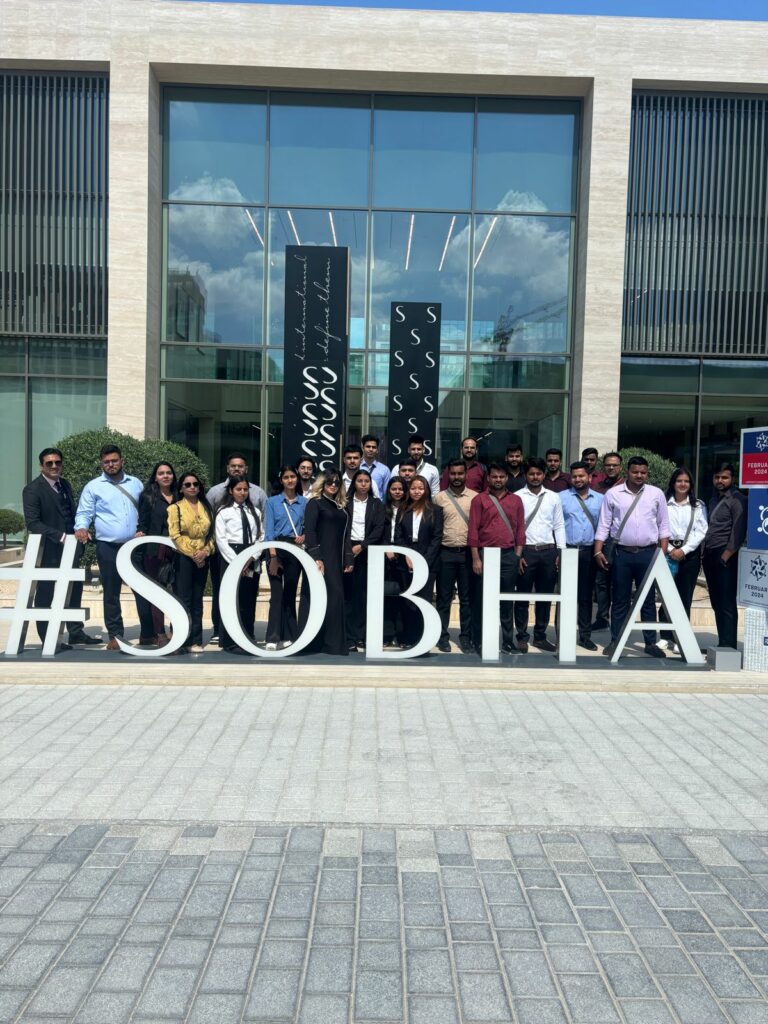
Individuals with an MBA degree are in demand across a wide range of industries and sectors, thanks to their versatile skill set and leadership potential.
Here are some common job profiles and career paths for MBA graduates:
Management Consultant
Individuals with an MBA degree often work as management consultants, advising organizations on strategic planning, operational improvement, and organizational restructuring.
Financial Analyst/Manager
With a strong foundation in finance, individuals holding an MBA degree can pursue roles such as financial analyst, finance manager, or investment banker. In these positions, they analyze financial data, assess investment opportunities, and manage financial portfolios.
Marketing Manager
Individuals with an MBA degree and a specialization in marketing can work as marketing managers, brand managers, or product managers. They are responsible for developing marketing strategies, managing product launches, and analyzing market trends.
Operations Manager
Individuals with an MBA specializing in operations management can work as operations managers, supply chain managers, or logistics managers. They oversee production processes, optimize supply chains, and improve operational efficiency.
Human Resources Manager
Individuals with an MBA degree specializing in human resources management can work as HR managers, talent acquisition managers, or training and development managers. Their roles involve managing employee recruitment, performance appraisal, and training programs.
Entrepreneur/Startup Founder
Many MBA graduates choose to start their own businesses or join startups, leveraging their entrepreneurial skills and business acumen to launch and grow successful ventures.
Business Development Manager
MBA degree holders can work as business development managers, identifying new business opportunities, negotiating partnerships and deals, and expanding the organization’s market reach.
Product Manager
MBA graduates can work as product managers, responsible for developing and managing product roadmaps, defining product features, and driving product innovation and development.
Project Manager
Individuals with an MBA degree can work as project managers, leading cross-functional teams to execute projects, manage budgets and timelines, and deliver project objectives.
Supply Chain Manager
MBA degree holders specializing in supply chain management often pursue careers as supply chain managers. In this role, they manage the entire supply chain process, optimize inventory levels, and oversee efficient distribution and logistics operations.
MBA Courses Career Scope: Salary and Top Recruiters
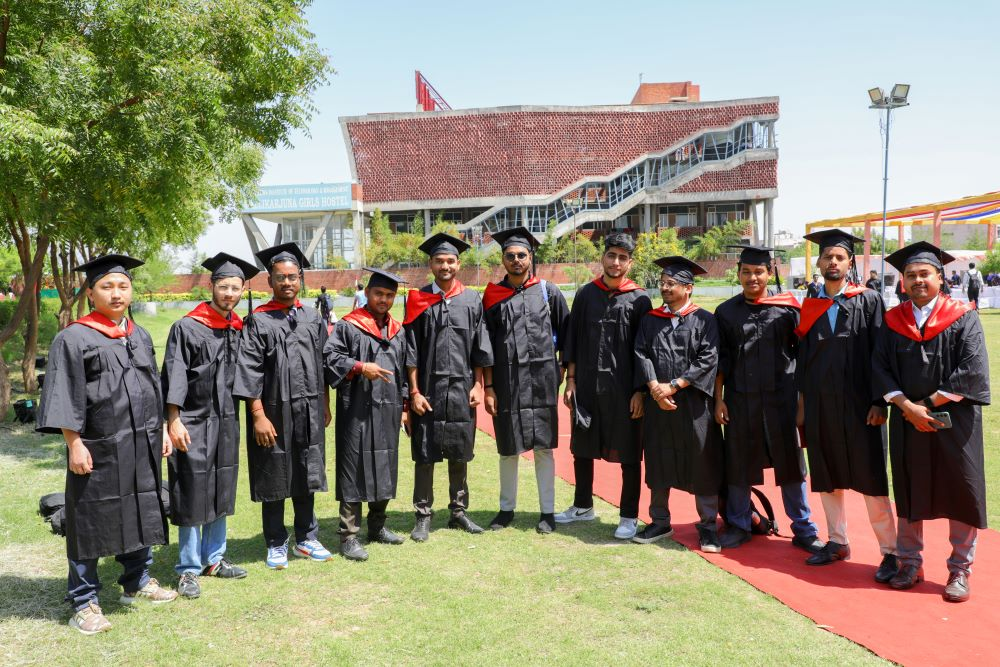
In India, individuals with an MBA degree enjoy a broad spectrum of career possibilities across diverse industries and sectors. MBA full name is “Master of Business Administration”.
Here’s a breakdown of the career scope, salary potential, and some top recruiters for MBA graduates in India:
Management Consulting:
Salary Range: In India, entry-level consultants with an MBA can expect salaries ranging from ₹6 lakhs to ₹12 lakhs per annum. Experienced consultants and partners can earn significantly more, reflecting the potential for an increased MBA salary with experience and advancement.
Top Recruiters: McKinsey & Company, Boston Consulting Group (BCG), Bain & Company, Deloitte Consulting, Accenture Strategy, KPMG, EY-Parthenon.
Finance:
Salary Range: Entry-level positions in finance in India typically offer salaries ranging from ₹6 lakhs to ₹12 lakhs per annum, with higher salaries for roles like investment bankers, financial analysts, or fund managers.
Top Recruiters: Goldman Sachs, J.P. Morgan Chase, Morgan Stanley, Citibank, HDFC Bank, ICICI Bank, Axis Bank, Kotak Mahindra Bank.
Marketing:
Salary Range: Entry-level marketing roles in India usually offer salaries ranging from ₹4 lakhs to ₹10 lakhs per annum, with higher salaries for marketing managers or directors.
Top Recruiters: Hindustan Unilever Limited (HUL), Procter & Gamble, Nestlé India, ITC Limited, PepsiCo India, Hindustan Coca-Cola Beverages, Marico, Dabur India.
Operations and Supply Chain Management:
Salary Range: Entry-level roles in operations and supply chain management in India may offer salaries ranging from ₹4 lakhs to ₹10 lakhs per annum, with higher salaries for senior positions.
Top Recruiters: Amazon India, Flipkart, Tata Consultancy Services (TCS), Infosys, Wipro, Accenture, Deloitte India, Tata Steel, Hindustan Unilever Limited (HUL).
Human Resources Management:
Salary Range: Entry-level HR roles in India typically offer salaries ranging from ₹4 lakhs to ₹8 lakhs per annum, with higher salaries for HR managers or directors.
Top Recruiters: Tata Consultancy Services (TCS), Infosys, Accenture, Deloitte India, Wipro, Cognizant, Capgemini, Larsen & Toubro (L&T), Hindustan Unilever Limited (HUL), and Amazon India are among the companies that actively seek to hire MBA graduates.
Entrepreneurship:-
Salary Range: Entrepreneurial earnings can vary widely depending on the success of the venture. Successful entrepreneurs can earn significant profits, while others may face financial challenges.
Top Recruiters: Startups, venture capital firms, angel investors, accelerators, and incubators.
It’s important to note that salaries and top recruiters may vary based on factors such as location, industry, company size, and individual experience and performance. Additionally, MBA graduates in India may pursue careers in other fields such as healthcare, technology, real estate, and non-profit organizations, each offering unique salary prospects and top recruiters.
Executive MBA Degrees are perfect for experienced professionals

Absolutely, Executive MBA (EMBA) degrees are tailored specifically for experienced professionals who are seeking to pursue MBA, aiming to enhance their managerial capabilities, accelerate their career progression, or transition into higher-level management roles while continuing to work full-time.
Here are some reasons why EMBA degrees are ideal for experienced professionals:
Designed for Professionals with Work Experience
EMBA programs typically require candidates to have several years of work experience, often ranging from 5 to 10 years. This ensures that participants bring real-world experience and insights to the classroom discussions and projects.
Flexible Schedule
EMBA programs are structured to accommodate the busy schedules of working professionals. Classes are often held on weekends, evenings, or in short intensive sessions, allowing participants to balance work, study, and personal commitments.
Applicable Learning
EMBA curricula focus on practical, applicable knowledge and skills that can be immediately applied to the workplace. Course content is often tailored to address current business challenges and trends, providing immediate value to participants and their organizations.
Networking Opportunities;
EMBA programs offer excellent networking opportunities with fellow professionals from diverse industries and backgrounds. Participants can learn from each other’s experiences, share best practices, and build valuable professional connections that can benefit them throughout their careers.
Career Advancement:
EMBA degrees are highly valued by employers and can significantly enhance career prospects. Graduates are well-positioned to take on higher-level leadership roles, pursue entrepreneurial ventures, or transition into new industries or functions.
Personal and Professional Development
EMBA programs often feature components for personal and professional development, such as leadership workshops, executive coaching, and experiential learning opportunities, which help participants cultivate essential management capabilities and competencies.
Global Perspective:
Many EMBA programs offer international study trips, global immersion experiences, or opportunities to collaborate with international cohorts, providing participants with a broader understanding of global business practices and perspectives.
Skills Required for MBA Course

An MBA (Master of Business Administration) program typically requires a combination of hard and soft skills.
Analytical Skills
MBA courses often involve rigorous analysis of data, financial statements, market trends, and case studies. Strong analytical skills are crucial for making informed business decisions.
Quantitative Skills
Proficiency in mathematics, statistics, and economics is important for understanding and interpreting business data and financial metrics.
Communication Skills
Effective communication, both written and verbal, is essential for presenting ideas, negotiating, and collaborating with team members and stakeholders.
Leadership Skills–
MBA courses often emphasize leadership development, including skills such as decision-making, conflict resolution, motivation, and team management.
Problem-Solving Skills
The ability to identify, analyze, and solve complex business problems is a key aspect of an MBA education. This involves critical thinking, creativity, and adaptability.
Strategic Thinking
MBA students learn to think strategically, considering long-term goals and the broader competitive landscape when making business decisions.
Global Perspective:-
With the increasingly globalized nature of business, having a global mindset and understanding of international markets, cultures, and economies is valuable.
Ethical Decision-Making
MBA courses often include courses on business ethics, teaching students to consider moral and ethical implications in their decision-making processes.
Networking Skills
Building and maintaining professional relationships is important in the business world. MBA courses often provide opportunities for networking with peers, alumni, and industry professionals.
Technology Skills
Proficiency in using business software and technology tools is becoming increasingly important in modern business environments. This includes skills in data analysis tools, project management software, and digital marketing platforms.
Financial Management Skills
Understanding financial principles, such as budgeting, forecasting, and risk management, is fundamental for business success.
Adaptability and Resilience
The business landscape is constantly evolving, so MBA graduates need to be adaptable and resilient in the face of change and uncertainty.
Online MBA Courses

Online MBA programs have gained popularity in India due to their flexibility and accessibility.
Here are some notable institutions offering online MBA courses in India:
IGNOU (Indira Gandhi National Open University): IGNOU offers a distance MBA program called “Master of Business Administration (MBA)”, which is designed to cater to the needs of working professionals and aspiring managers. The program includes study materials, online lectures, and periodic workshops.
NMIMS Global Access School for Continuing Education (NGA-SCE): NMIMS offers online MBA programmes in various specializations such as Finance, Marketing, HR, Operations, and Business Analytics. These programs are designed to provide working professionals with the flexibility to balance their studies with work and other commitments.
UPES School of Business: UPES offers an online MBA degree with specializations in areas such as Oil and Gas Management, Power Management, Logistics and Supply Chain Management, and more. The program is designed to meet the needs of professionals working in specialized industries.
Pondicherry University: Pondicherry University offers an online MBA course through its Directorate of Distance Education. The program covers various management subjects and is designed to provide working professionals with the flexibility to pursue higher education without disrupting their careers.
MBA Courses Fee Structure

MBA full name is Master of Business Administration. The fee structure for MBA courses can vary significantly depending on the institution, program duration, specialization, location, and other factors.
Here’s a general overview of the MBA course fee structure in India:
Government Institutions:
- Indian Institutes of Management (IIMs): The fee for MBA courses at IIMs is relatively higher compared to other institutions. The total course fee for a two-year MBA course at IIMs can range from ₹10 lakhs to ₹25 lakhs or more, depending on the institute.
- Other Government Institutions: Public universities and autonomous institutions may offer MBA courses at more affordable rates compared to private institutions. The total course fee for a two-year MBA course at government institutions can range from ₹1 lakh to ₹10 lakhs, depending on the institute and specialization.
Private Institutions:
- Top Private B-Schools: Private institutions like XLRI, SPJIMR, ISB, FMS, and NMIMS typically have higher average MBA tuition fees compared to government institutions. The total course fee for a two-year MBA programme at these institutions can range from ₹10 lakhs to ₹30 lakhs or more, depending on the institute and specialization.
- Other Private B-Schools: Private B-schools offering MBA courses may have varying fee structures based on factors such as reputation, infrastructure, faculty, and placement records. The total course fee for a two-year MBA course at these institutions can range from ₹2 lakhs to ₹20 lakhs, depending on the institute.
International Institutions:
- Global MBA Programs: Some Indian students opt to pursue MBA courses abroad, which may have higher tuition fees compared to domestic institutions. The total course fee for international MBA courses can range from ₹20 lakhs to ₹1 crore or more, depending on the institution, location, and program duration.
Scholarships and Financial Aid:
- Many institutions offer scholarships, grants, and financial aid to deserving students based on academic performance, entrance test scores, work experience, and other MBA eligibility criteria. Students should explore scholarship opportunities and financial aid options to help offset the cost of MBA education.
MBA Admission Based on the Entrance Examination
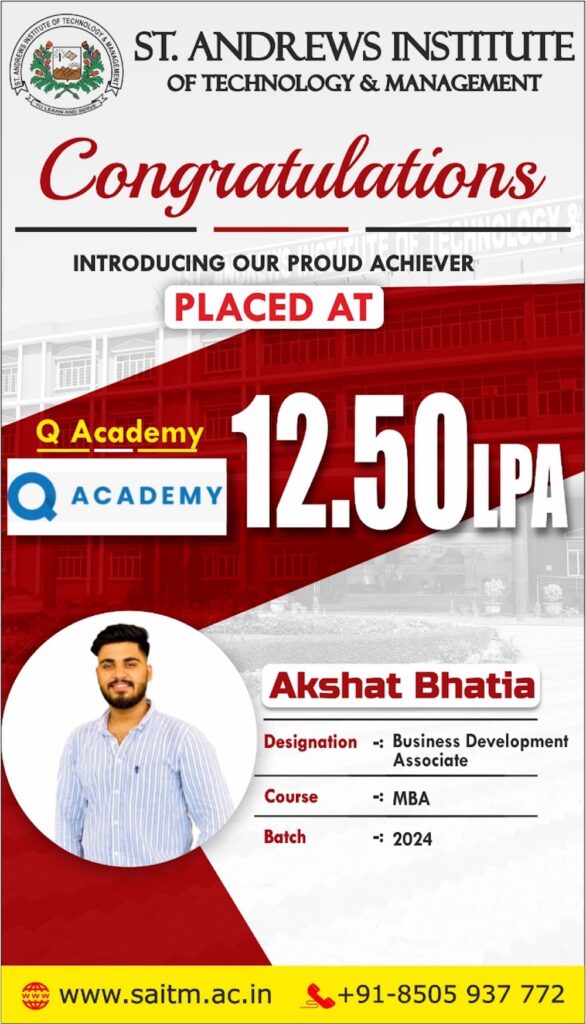
Admission to MBA programs in India is primarily based on entrance examinations conducted at national, state, or institutional levels.
Here are some of the key entrance exams for MBA admissions in India:
Common Admission Test (CAT)
CAT is a computer-based entrance exam conducted annually by the Indian Institutes of Management (IIMs) on a rotational basis. CAT scores are accepted by IIMs and various other top management institutes across India.
Xavier Aptitude Test (XAT)
XAT is conducted by Xavier School of Management (XLRI) on behalf of Xavier Association of Management Institutes (XAMI). XAT scores are accepted by XLRI and several other management institutes.
Management Aptitude Test (MAT)
MAT is conducted by the All India Management Association (AIMA) four times a year (February, May, September, and December). MAT scores are accepted by numerous management institutes across India.
Common Management Admission Test (CMAT)
CMAT is conducted by the National Testing Agency (NTA) once a year. CMAT scores are accepted by AICTE-approved management institutes.
Maharashtra Common Entrance Test (MH-CET)
MH-CET is conducted by the State Common Entrance Test Cell, Maharashtra, for admissions to MBA/MMS courses in Maharashtra.
Indian Institute of Foreign Trade (IIFT) Entrance Exam
IIFT conducts its own entrance exam for admissions to its MBA (International Business) program.
Study MBA in India

Studying for an MBA in India can be a rewarding experience, given the country’s diverse business landscape, growing economy, and renowned educational institutions.
Here’s a general overview of pursuing an MBA in India:
Choose a Specialization
MBA full name is “Master of Business Administration”. MBA specialisations in India encompass a variety of fields including Finance, Marketing, HR, Operations, Information Technology, Global Trade, and Entrepreneurship. It is crucial to reflect on your career aspirations and personal interests to choose the specialization that best aligns with your professional goals.
Research Institutions
India is home to numerous top business schools offering MBA courses. Research institutions based on factors such as rankings, faculty expertise, alumni network, infrastructure, and placement records. Some renowned institutions include the Indian Institutes of Management (IIMs), XLRI Jamshedpur, ISB Hyderabad, FMS Delhi, SPJIMR Mumbai, and IIFT Delhi.
Entrance Exams–
Most MBA programs in India require candidates to clear entrance exams. The Common Admission Test (CAT) is the most widely accepted exam for IIMs and other top B-schools. Other exams include XAT, MAT and CMAT. Prepare thoroughly for the exam(s) by solving sample papers, taking mock tests, and brushing up on relevant concepts.
Application Process
Once you’ve shortlisted the institutions you’re interested in, familiarize yourself with their application procedures and deadlines. Applications typically require academic transcripts, entrance exam scores, essays/personal statements, letters of recommendation, and resumes. Ensure that you submit all required documents accurately and before the deadline.
Prepare for Group Discussions and Personal Interviews
Many B-schools in India conduct group discussions (GD) and personal interviews (PI) as part of their selection process. Practice articulating your thoughts clearly, expressing opinions diplomatically, and engaging in constructive discussions. Brush up on current affairs, business news, and industry trends to ace the PI.
Financial Planning
MBA programs in India can vary significantly in terms of tuition fees and living expenses. Consider your budget and explore scholarship opportunities, financial aid, and loan options to fund your education. Evaluate the return on investment (ROI) of the program in terms of future career prospects and earning potential.
Networking and Extracurricular Activities
While pursuing MBA course, actively participate in networking events, industry seminars, and extracurricular activities. Build relationships with classmates, alumni, and industry professionals to expand your professional network and enhance your learning experience.
Internships and Projects
Take advantage of internship opportunities and industry projects offered as part of the MBA programme. Practical experience complements theoretical learning and provides valuable insights into real-world business scenarios.
FAQs
What is the qualification for MBA?
The typical qualification for pursuing an MBA (Master of Business Administration) is a bachelor’s degree in any discipline from a recognized university or institution.
MBA full name is Master of Business Administration. Additionally, most MBA programs require candidates to have some level of work experience, although this may vary depending on the institution and program. Some MBA programs may also require candidates to clear entrance exams such as CAT, XAT, or MAT as part of the MBA admission process.
What is MBA full form and jobs?
The full form of MBA is “Master of Business AdministratioFn.” MBA graduates are qualified for a wide range of job roles across various industries and sectors.
Some common job roles for MBA graduates include:
- Management Consultant
- Financial Analyst/Manager
- Marketing Manager
- Operations Manager
- Human Resources Manager
- Business Development Manager
- Product Manager
- Project Manager
- Supply Chain Manager
- Entrepreneur/Startup Founder
What is MBA best full name?
MBA full name is “Master of Business Administration” is universally recognized and widely used to refer to the degree program. It succinctly captures the essence of the academic qualification, emphasizing mastery of business management principles and administration skills. Therefore, “Master of Business Administration” is considered the best and most appropriate full name for the MBA degree.
Can I do an MBA after 12th?
MBA full name is Master of Business Administration. No, pursuing an MBA directly after completing 12th grade is not possible. MBA programs generally require candidates to have completed a bachelor’s degree from a recognized university or institution. Therefore, students typically pursue an undergraduate degree before considering MBA studies.
Why do you choose MBA?
Individuals may opt to pursue an MBA for various reasons, such as advancing their career, gaining specialized knowledge in business administration, enhancing their management abilities, increasing their earning potential, or transitioning into a new industry or role aligned with the MBA specialisation chosen.
What are the benefits of MBA?
The benefits of pursuing an MBA, including career advancement, increased earning potential, specialized knowledge, networking opportunities, a global perspective, entrepreneurial skills development, enhanced problem-solving abilities, leadership development, personal growth, and increased credibility and prestige, are amplified by various MBA specializations.
What skills does an MBA give you?
Upon completing an “MBA Full Name,” graduates possess a versatile skill set encompassing leadership, communication, analytical thinking, strategic planning, fiscal oversight, marketing, operations management, entrepreneurship, negotiation, global perspective, decision-making, and networking.
What work experience is required for MBA?
For “MBA Full Name” programs, the general preference is for candidates with 1-2 years of full-time work experience, although criteria may differ. Certain programs might admit individuals with less experience, especially if they exhibit robust academic or leadership qualities.
Candidates with 3-5 years or more of work experience, especially in managerial or leadership roles, are often competitive for MBA programs, particularly executive or part-time formats.
What is the average MBA Salary?
In India, the average salary for “MBA Full Name” graduates fluctuates based on factors like the institution of the degree, specialization, work experience, industry, and job role.
On average, MBA graduates in India can expect to earn anywhere between ₹5 lakhs to ₹25 lakhs per year. However, salaries can be higher for graduates from top-tier business schools and those in leadership or managerial positions within prestigious companies or industries.
How does an MBA help me in my career?
Advanced Business Knowledge: An MBA equips you with in-depth understanding of various aspects of business, including finance, marketing, operations, and strategy.
Leadership Development: MBA programs focus on developing leadership skills such as decision-making, problem-solving, and team management.
Networking Opportunities: MBA programs provide extensive networking opportunities with classmates, alumni, and industry professionals.
Career Advancement: MBA graduates are often considered for higher-level positions and enjoy increased earning potential.
Specialized Expertise: With MBA specialisations available, you can develop expertise in specific areas aligned with your career goals.
Global Perspective: Exposure to global business practices broadens your perspective and enhances adaptability in diverse work environments.
What is Distance MBA?
Distance MBA, also referred to as Distance Learning MBA or Correspondence MBA, offers flexibility in pursuing a Master of Business Administration (MBA) without regular on-campus classes. In “MBA Full Name” programs, students engage with online materials, video lectures, textbooks, and assignments provided by the offering institution.
Distance MBA programmes offer the flexibility for students to study at their own pace and convenience, making them ideal for working professionals or individuals unable to commit to full-time, on-campus study. These programs, available through various MBA colleges, often provide specialization options akin to traditional MBA degrees and may necessitate occasional attendance at in-person sessions or examinations.





